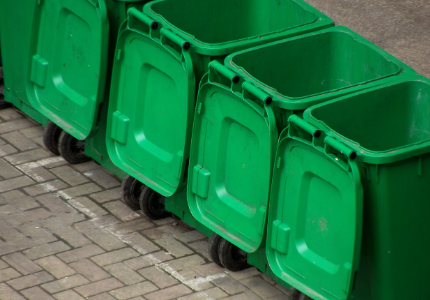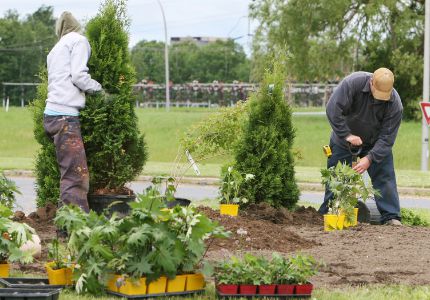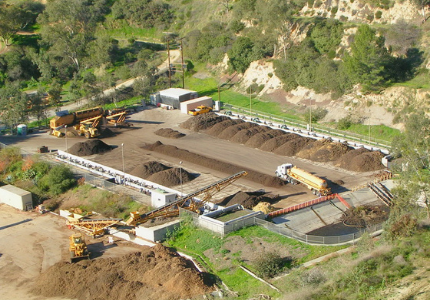Resources for Jurisdictions
Overview of Requirements
Jurisdictions are responsible for implementing SB 1383 regulations in their communities and must coordinate city and county planners, waste haulers, waste processing facilities, recyclers, commercial businesses, residents, and edible food recovery organizations. “Jurisdiction” means a city, county, a city and county, or a special district that provides solid waste collection services.
Jurisdiction responsibilities include:
- Evaluating the jurisdiction’s readiness and capacity to implement SB 1383, including organics collection, recycling and edible food recovery capacity
- Providing organic waste collection to all residents and businesses, which means providing service automatically and not relying on the generator to subscribe
- Establishing an edible food recovery program that recovers edible food from the waste stream
- Conducting outreach and education to all affected parties, including generators, haulers, facilities, edible food recovery organizations, and city/county departments
- Procuring recycled organic waste products like compost, mulch, renewable natural gas (RNG), and electricity. Procuring does not necessarily mean purchasing.
- Inspecting and enforce compliance with SB 1383. Edible food generator inspections can be combined with existing health inspections
- Maintaining accurate and timely records of SB 1383 compliance
California recycling manufacturers, cities, counties, haulers, and businesses can access millions of dollars in public and private funding for infrastructure to reduce waste and cut greenhouse gas emissions in their communities. CalRecycle has compiled potential funding sources, employee training assistance, and other financial incentives that jurisdictions and others can use for:
- Edible Food Recovery Programs
- Intermediate and Secondary Recycling Manufacturing Infrastructure
- In-Vessel Digestion Facilities
- Composting Facilities
- Reuse Projects
Elected Officials
Every department within a jurisdiction will be affected by the implementation of SB 1383 and will have a role to play. Staff in every department will need to understand how SB 1383 impacts their work, and implementation may require adding staff or contracting with other entities, such as environmental health inspectors or consultants.

Collection
SB 1383 regulations allow jurisdictions to customize collection services for businesses and residents, including single-container and multiple-container systems.
Education and Outreach
Jurisdictions are required to educate their constituents about new organics recycling requirements.
Edible Food Recovery
Jurisdictions are required to develop a robust edible food recovery infrastructure that links commercial edible food generators with food recovery organizations, like food banks and pantries, soup kitchens, and other local non-profits that distribute food to the needy.

Procurement Requirements: Using Recycled Organics Products
Beginning January 1, 2022, cities and counties must annually procure a quantity of recovered organic waste products. Jurisdictions can fulfill their target by procuring any combination of eligible products such as compost, mulch, and renewable energy.
CalRecycle’s Procurement Calculator Tool can be used to help a jurisdiction plan for its procurement and track its progress towards meeting its procurement goals.
Capacity Planning
SB 1383 requires counties to take the lead collaborating with the jurisdictions located within the county in planning for the necessary organic waste recycling and food recovery capacity needed to divert organic waste from landfills into recycling activities and food recovery organizations.

CALGreen/MWELO
Jurisdictions are to adopt an ordinance or other enforceable measure requiring compliance with specific sections of CALGreen and MWELO.
Recordkeeping
Jurisdictions are to maintain all records required by the SB 1383 regulations in an Implementation Record. CalRecycle has developed Model Implementation Record Tools that jurisdictions can use to assist in meeting implementation record and recordkeeping requirements.
Reporting
Jurisdictions are to report on program implementation. CalRecycle has developed Model Reporting Tools that jurisdictions can use to assist in meeting reporting requirements.
For more information contact: Short-Lived Climate Pollutants (SLCP), Organic Waste Methane Emissions Reductions, SLCP.Organics@calrecycle.ca.gov
